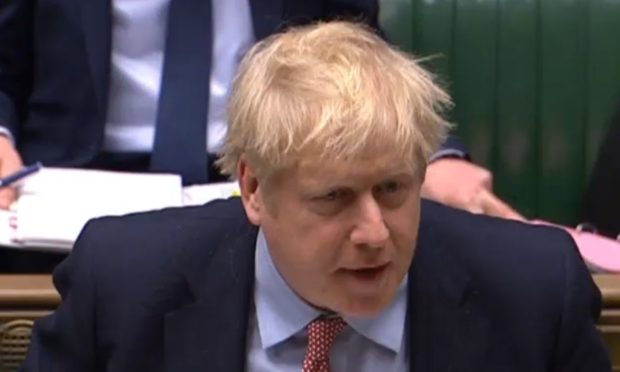Gordon Brown was mocked mercilessly when he said he’d saved the world.
It was a hubristic slip of the tongue during the heat of prime minister’s questions during his time in Number 10.
However, the claim was only slightly overblown. His intellectual heft and international gravitas did play a huge part in putting together a co-ordinated response to the financial crisis (we’ll set aside for now how much responsibility he wears for creating the conditions for the crash to happen in the first place as it’s irrelevant to this column).
But it was easy to ridicule Brown’s mistake because there was nothing to compare his efforts with. We could not fairly judge if he’d done a better or worse job than anyone else because no one else had faced such a scenario.
Not any more.
The nation and the planet face a different sort of crisis in Covid-19. But people don’t change that much.
They look to the prime minister for leadership, to politicians for competence, to government for action.
But where Brown embodied all three as the world economy teetered on the brink of collapse 12 years ago, the current administration offers little but rank bampottery.
The coronavirus crisis has magnified all Boris Johnson’s foibles and failings.
His penchant for wordsmithery was entertaining in his writings. But when the nation needs to know how to avoid a health catastrophe the message needs to be straight.
He’s notoriously inattentive to detail and fond of delegation, which explains why he sees no problem with allowing ministers to announce measures, that then need another day of clarification.
Chancellor Rishi Sunak has essentially made three Budget speeches in the last fortnight, each induced by oversights in the previous one. The PM could blame Number 11 dysfunction if he hadn’t just booted Sajid Javid in the name of taking more oversight of the Treasury.
Last week the government told everyone to stay away from pubs, cafes and cinemas on Monday then took until Friday to explain how it was going to support all the people inevitably made redundant as a result.
That’s unforgivable in a climate in which people are already anxious about whether they’ll be able to find the ingredients for their next meal. They shouldn’t have to worry about whether they’ll be able to pay for it too.
Of course if the government really put the fate of the economy above ideology as they seem to have done with some of the measures they’ve announced, such as wage support and scrapping tax, then they’d scrap Brexit, or at the very least postpone it.
It’s not a party political point, but putting up new trade barriers next year as the nation claws its way out of recession does not fit with what the Tories often value above all else – common sense.
The PM has a reputation for sloth, which seems the only explanation for why the government insists on holding press conferences at the end of each day. It’s almost as if they can’t be bothered to get out of bed. Why not hold the press conferences first thing in the morning, get a grip on the day’s agenda and the nation’s worries and possibly wire some confidence through the markets too?
Ultimately this deadly serious epidemic has exposed the prime minister’s lack of seriousness. It’s alleged he urged manufacturers to help make more ventilators in an effort jokily referred to as Operation Last Gasp.
If he uttered them, those words ought to haunt him through the horror that awaits the nation and which we can already see unfolding in Italy.
He referred to the effort to flatten the curve of new coronavirus cases and reduce the stress on the NHS as “squashing the sombrero”. It’s not about a funny turn of phrase, it’s about saving lives. Why should anyone else be expected to take social distancing measures seriously if the man leading the nation is focused on alliterating with hats?
Labour don’t come out of this crisis any better. If Jeremy Corbyn and his cronies had not led the party into oblivion we might have an alternative government to look to for proper leadership.
Instead the Magic Grandad and all those vying to replace him have gone to ground. Of course it’s not a good look to undermine the government at a time of such grave matters. But it’s entirely possible to support the effort, help disseminate the key messages and draw attention to the government’s failings at the same time. Or at least it is if you are a politician of moderate skill and mental dexterity. Such people are lacking in this Parliament so far. Though leaders will emerge. We may just have to look beyond Downing Street or even Parliament to find them.
Almost everyone in the country wants to believe the PM is getting to grips with this, we are willing the administration to succeed. But the grim truth is that so far it is not.
We must hope that changes. It begins with straight talk and hard work. There’s little evidence Boris Johnson is the man to embrace or embody those values.
James Millar is a political commentator and author and a former Westminster correspondent for The Sunday Post











